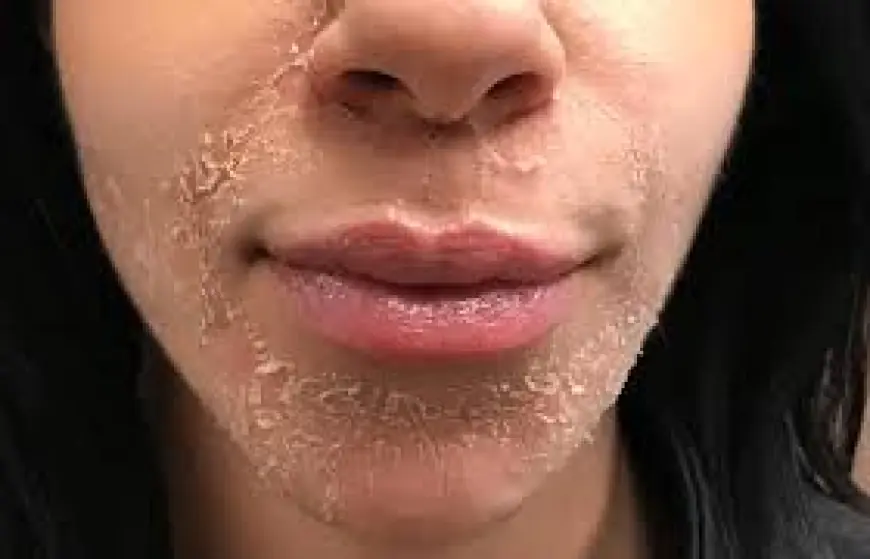How Do I Know If My Skin Is Ready for a Peel?
A chemical peel exfoliates the skin’s surface, helping improve tone, texture, and clarity for a refreshed, youthful glow.

When considering a chemical peel, many wonder, how do I know if my skin is ready for a peel? Understanding your skin’s readiness is crucial for achieving optimal results and minimizing risks. Chemical Peeling in Dubai(التقشير الكيميائي في دبي) can dramatically improve skin texture, tone, and clarity by exfoliating the surface and encouraging new cell growth. However, applying a peel at the wrong time or on unprepared skin can cause irritation or unwanted side effects. This article guides you through recognizing the signs that your skin is primed for this treatment, what to consider before proceeding, and how to ensure the best possible outcome.
The Importance of Preparing Your Skin for a Peel:
Chemical peels work by removing dead skin cells and promoting regeneration, but this process can stress the skin temporarily. Knowing when your skin is ready helps avoid excessive irritation or damage. Preparing your skin ahead of time by addressing current skin conditions and adopting a gentle skincare routine can improve your peel’s effectiveness and reduce recovery time. Skin that is calm, hydrated, and free from active infections or severe sensitivities is typically best suited for peeling treatments.
Signs Your Skin Is Ready for a Chemical Peel:
Before scheduling a peel, evaluate these key indicators that suggest your skin is prepared:
-
No active breakouts or infections: Clear skin without open wounds or acne flare-ups reduces the risk of worsening irritation.
-
Minimal sunburn or irritation: Skin should not be sunburned, inflamed, or overly sensitive, as this can increase peeling complications.
-
Stable skin condition: If you have chronic issues like eczema or rosacea, these should be under control to avoid flare-ups.
-
Good hydration levels: Well-moisturized skin responds better to peeling agents and heals faster.
-
Consistent skincare routine: Skin accustomed to gentle exfoliation and hydration tends to tolerate peels more comfortably.
Assessing these factors helps ensure your skin is resilient enough to handle the exfoliating process.
Risks of Peeling Unprepared Skin:
Using a chemical peel on skin that isn’t ready can lead to several complications:
-
Severe irritation and redness due to weakened skin barrier
-
Prolonged peeling or scabbing from excessive damage
-
Increased sensitivity to sunlight risking hyperpigmentation
-
Worsening of existing skin conditions such as acne or eczema
-
Infection risk if skin has open wounds or lesions
Avoiding these risks by confirming your skin’s readiness is key to a safe and successful peel.
Benefits of Peeling When Skin Is Ready:
When your skin is properly prepared, Chemical Peeling(التقشير الكيميائي) offer multiple advantages:
-
Smoother texture and radiant complexion as dead cells are gently removed
-
Reduced appearance of fine lines, pigmentation, and scars with enhanced skin renewal
-
Balanced oil production and clearer pores especially beneficial for acne-prone skin
-
Improved absorption of skincare products after surface exfoliation
-
Shorter recovery time with less discomfort and visible irritation
Starting a peel with skin in good condition maximizes these positive outcomes.
FAQs About Skin Readiness for a Peel:
Can I do a peel if I have sensitive skin?
Yes, but choose a mild peel and ensure your skin is not irritated before starting. Patch tests are recommended.
How long should I prepare my skin before a peel?
Typically, 1 to 2 weeks of gentle skincare and sun protection helps ready your skin.
What if I recently had sun exposure?
Wait until any sunburn or redness has fully healed before scheduling a peel.
Can I use exfoliants before a peel?
Using mild exfoliants can prepare skin but avoid harsh scrubs or over-exfoliation right before the peel.
How do I know if my skin reacted badly to a peel?
Severe redness, swelling, blistering, or prolonged discomfort indicates a negative reaction.
Conclusion:
So, how do I know if my skin is ready for a peel? The answer lies in assessing your skin’s current condition, ensuring it is calm, hydrated, and free from irritation or active issues. Taking time to prepare your skin with a gentle routine and sun protection improves the peel’s safety and effectiveness. Being aware of the signs of readiness and understanding potential risks helps you approach chemical peeling with confidence. When done at the right time, chemical peels can transform your complexion, revealing smoother, brighter, and healthier skin.
What's Your Reaction?
 Like
0
Like
0
 Dislike
0
Dislike
0
 Love
0
Love
0
 Funny
0
Funny
0
 Angry
0
Angry
0
 Sad
0
Sad
0
 Wow
0
Wow
0

















































